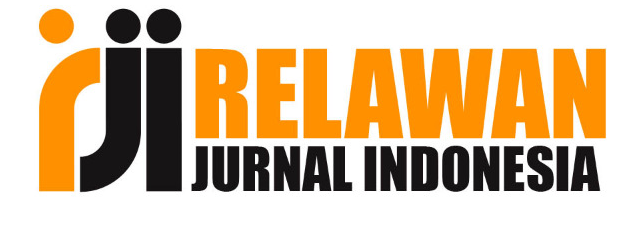Gaya Kepemimpinan, Motivasi, dan Kepuasan Kerja: Dampaknya terhadap Kinerja Pegawai Dinas Pariwisata Kabupaten Kerinci
Leadership Style, Motivation, and Job Satisfaction: Their Impact on Employee Performance at the Tourism Office of Kerinci Regency
DOI:
https://doi.org/10.32939/dhb.v6i2.5035Keywords:
Leadership Style, Work Motivation, Job Satisfaction, Employee Performance, Expectancy Theory of MotivationAbstract
Purpose: This study aims to analyze the role of leadership and motivation in improving employee performance and to examine the role of job satisfaction as a mediating variable.
Design/Methodology/Approach: This research employed a quantitative causal approach with data collected through questionnaires. The study involved 50 respondents determined using a saturated sampling method. The analytical technique applied was Structural Equation Modeling (SEM) with a Partial Least Squares (PLS) approach.
Findings: The results reveal that leadership style has a positive and significant effect on job satisfaction, and work motivation also has a positive and significant effect on job satisfaction. Furthermore, leadership style significantly and positively influences employee performance, as does work motivation. However, job satisfaction shows a negative and insignificant effect on employee performance. In addition, job satisfaction does not mediate the relationship between leadership style and employee performance, nor between work motivation and employee performance.
Research Implications: The findings highlight the importance of effective leadership and strong work motivation in enhancing employee performance in the public sector, particularly at the Kerinci Tourism Office. Nevertheless, job satisfaction does not serve as an effective mediating factor in strengthening these relationships. Therefore, organizations need to design participative leadership strategies and more targeted motivation policies to improve employee productivity.
Downloads
References
Chiang, C. F., & Jang, S. S. (2008). The antecedents and consequences of psychological empowerment: The case of Taiwan’s hotel companies. Journal of Hospitality & Tourism Research, 32(1), 40–61. https://doi.org/10.1177/1096348007309568
Fauzan, I., Sulistiyo, M. A., & Hendrawan, B. (2024). Motivasi dan kinerja pegawai dalam organisasi berbasis keagamaan. Jurnal Manajemen dan Organisasi, 18(2), 134–148. https://doi.org/10.21831/jmo.v18i2.65231
Ghozali, I., & Latan, H. (2015). Partial Least Squares: Konsep, teknik dan aplikasi menggunakan program SmartPLS 3.0. Badan Penerbit Universitas Diponegoro.
Hasibuan, M. S. P. (2019). Manajemen sumber daya manusia. Bumi Aksara.
Herningrum, I., Ekawarna, E., Khairinal, K., Hadiyanto, H., & Sarmigi, E. (2023). Mediation Effect of Job Satisfaction on The Effect of Participatory Leadership Style and Individual Creativity on Senior High School Teacher Performance in Kerinci District. PPSDP International Journal of Education, 2(2), 230-244.
Istan, M. (2022). The effect of motivation on employee performance in religious social institutions. International Journal of Social Management, 10(1), 55–67. https://doi.org/10.21009/ijsocm.101.05
Kashi, K., Muchtar, A., & Siregar, S. (2024). Leadership and sustainable performance in organizational governance. Journal of Leadership in Organizations, 6(1), 23–34. https://doi.org/10.22146/jlo.76211
Khabibah, N., Rachmawati, R., & Suryani, D. (2021). Leadership style and its impact on organizational performance. Journal of Business and Management Review, 2(6), 405–418. https://doi.org/10.47153/jbmr26.2582021
Luthans, F. (2011). Organizational behavior: An evidence-based approach (12th ed.). McGraw-Hill.
Mohamed, N., Zakaria, N., & Rahman, H. A. (2023). Governance, leadership, and accountability in religious organizations. Journal of Islamic Accounting and Business Research, 14(7), 1105–1123. https://doi.org/10.1108/JIABR-04-2022-0112
Pahlevi, M. R., Setiawan, R., & Lestari, S. (2025). Job satisfaction and organizational performance in nonprofit organizations. Journal of Nonprofit Management, 9(1), 45–58. https://doi.org/10.5430/jnm.v9n1p45
Putri, N., Sarmigi, E., & Desiana, D. (2024). Improving Employee Performance and Work Motivation Through Compensation and Leadership Style. KINERJA, 28(2), 195-209. https://doi.org/10.24002/kinerja.v28i2.8678
Rivai, V., & Sagala, E. J. (2013). Manajemen sumber daya manusia untuk perusahaan. Rajawali Pers.
Robbins, S. P., & Judge, T. A. (2019). Organizational behavior (18th ed.). Pearson.
Saputra, R., Nugroho, H., & Ratnasari, S. L. (2020). Pengaruh gaya kepemimpinan dan motivasi kerja terhadap kepuasan kerja pegawai. Jurnal Ilmu Manajemen, 8(2), 215–226. https://doi.org/10.31328/jim.v8i2.1112
Sarmigi, E., Sumanti, E., Nilda, E., Desiana, D., & Bustami, B. (2024). Pengaruh Servant Leadership Dan Organizational Citizenship Behavior Terhadap Kinerja Pengurus Bumdes Di Kabupaten Kerinci. MASTER: Jurnal Manajemen Strategik Kewirausahaan, 4(1), 37-46. https://doi.org/10.37366/master.v4i1.904
Setiawan, R. (2024). Accountability, job satisfaction, and financial performance of public organizations. International Journal of Public Sector Performance Management, 11(3), 289–305. https://doi.org/10.1504/IJPSPM.2024.133457
Siagian, S. P. (2016). Teori motivasi dan aplikasinya. Rineka Cipta.
Sudibyo, Y. A., & Sutanto, E. M. (2020). Pengaruh kepemimpinan transformasional, motivasi kerja, dan lingkungan kerja terhadap kinerja karyawan. Jurnal Manajemen dan Kewirausahaan, 22(2), 95–106. https://doi.org/10.9744/jmk.22.2.95-106
Sutrisno, E. (2019). Manajemen sumber daya manusia. Prenadamedia Group.
Syaikhu, A., Rahman, F., & Yusuf, M. (2021). Motivation and work satisfaction in Islamic educational institutions. Journal of Education and Learning, 15(2), 219–227. https://doi.org/10.11591/edulearn.v15i2.18143
Vroom, V. H. (1964). Work and motivation. Wiley.
Widiastuti, E., Prasetyo, T., & Hidayah, S. (2022). Leadership, governance, and satisfaction in religious-based organizations. Journal of Leadership, Accountability and Ethics, 19(5), 11–24. https://doi.org/10.33423/jlae.v19i5.5403
Wijaya, H., Santoso, A., & Ramdhani, S. (2019). Pengaruh kepuasan kerja terhadap kinerja pegawai dengan motivasi sebagai variabel moderasi. Jurnal Ekonomi dan Bisnis, 22(1), 45–60. https://doi.org/10.20961/jeb.v22i1.222
Yukl, G. (2013). Leadership in organizations (8th ed.). Pearson.
Downloads
Published
How to Cite
Issue
Section
License
Copyright (c) 2025 Aldi Saputra, Yulasmi Yulasmi, Zefriyenni Zefriyenni, Masrida Zasriati

This work is licensed under a Creative Commons Attribution 4.0 International License.













